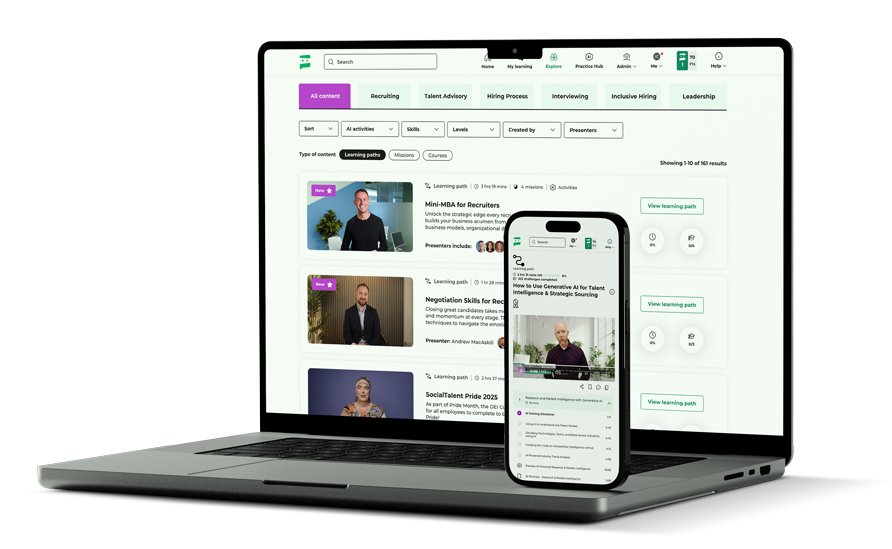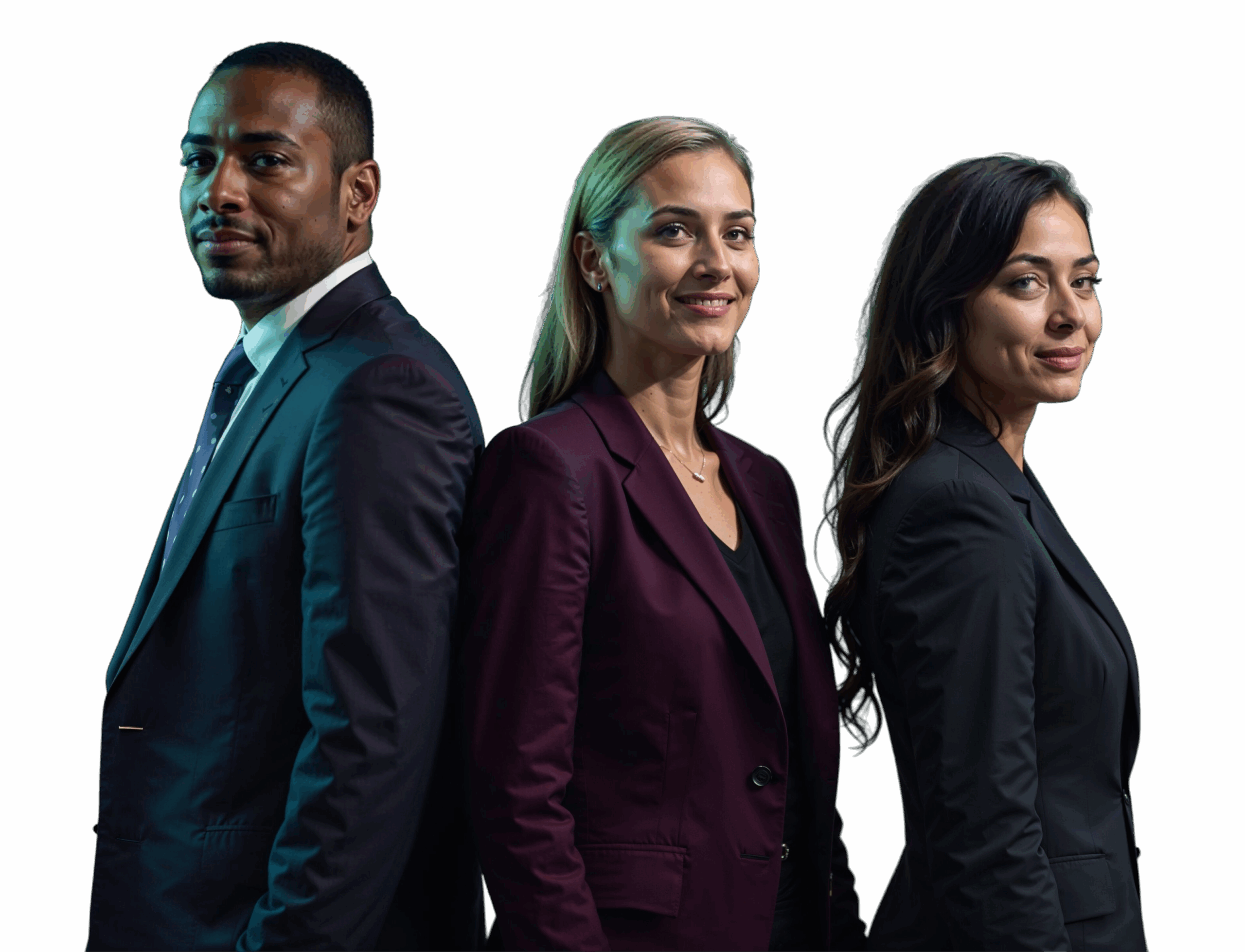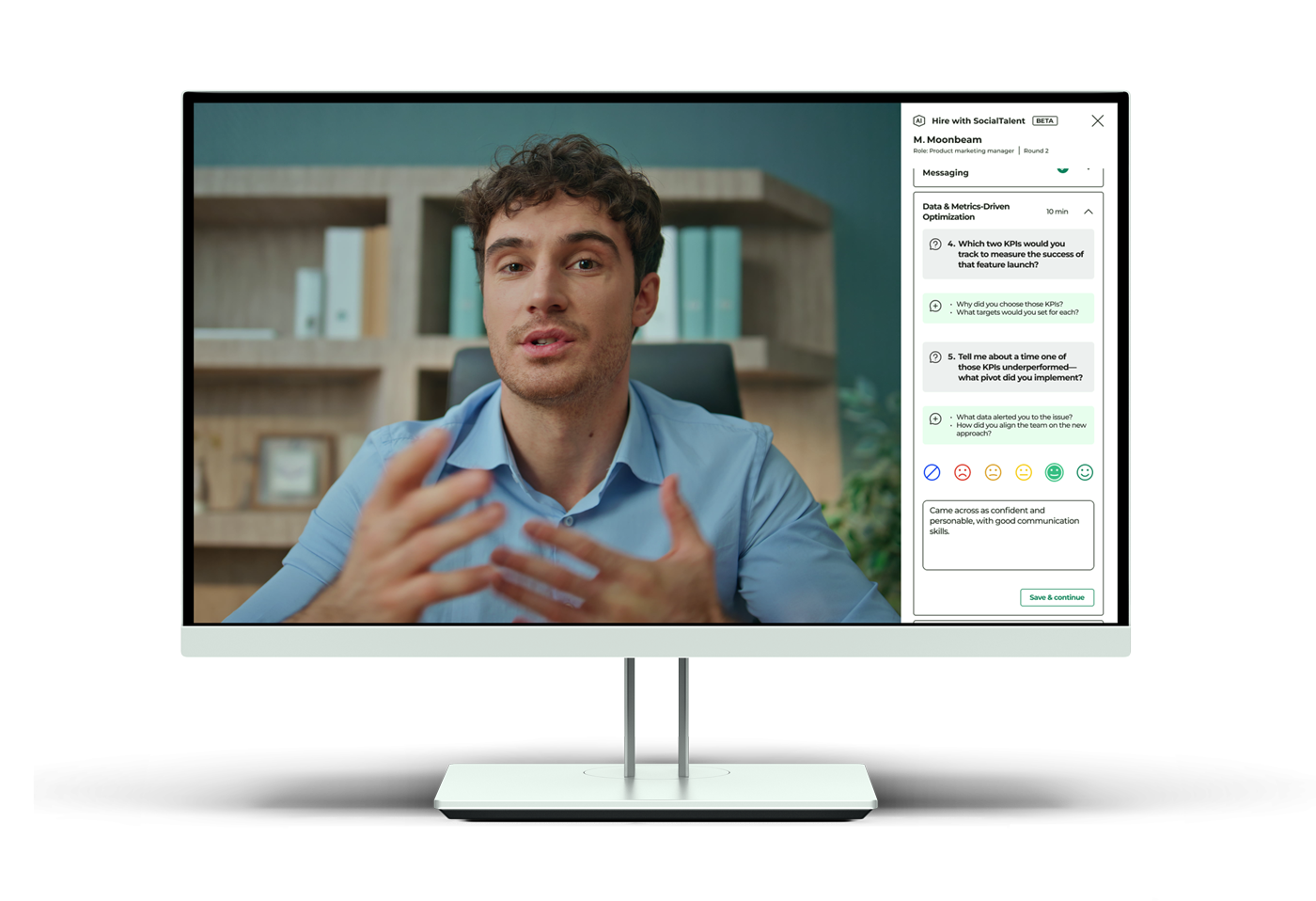
By David Deady
Imagine leading a team where every hire brings fresh perspectives, where innovation is fueled by a tapestry of diverse experiences, and where inclusivity isn’t just a goal – it’s the foundation of success. This isn’t just an ideal; it’s what happens when hiring managers are empowered with the knowledge and tools to implement inclusive hiring practices.
Inclusive hiring is a critical strategy for building a dynamic, innovative, and thriving workforce. As a hiring manager, your role in fostering this culture of inclusivity is pivotal. This guide is designed to equip you with actionable insights and practical steps to seamlessly integrate inclusivity into every stage of the hiring process. By mastering these practices, you’ll not only enhance candidate experience but also contribute to creating a workplace where diversity drives success.

Understanding Inclusive Hiring
Inclusive hiring goes beyond simply filling a quota or checking a box. It is about creating a recruitment process that actively seeks to reduce barriers, eliminate bias, and ensure that every candidate is given an equal opportunity to succeed. This approach recognizes the inherent value of diversity in all its forms – be it race, gender, age, disability, or background – and its positive impact on the organization.
Why It Matters:
- Foundation for Innovation: A diverse workforce brings together a variety of perspectives and ideas, which can lead to more creative solutions and innovations.
- Enhanced Engagement: Employees who feel represented and included are more likely to be engaged and committed to their work.
- Better Decision Making: Diverse teams are proven to make better, more informed decisions, leading to improved business outcomes.
- The Right Thing: Aside from the organizational benefits, aiming for an inclusive hiring process is a morally just thing to do. Our world is made up of differences and our processes should mirror and support this.
So, now we know why inclusive hiring is so important, let’s get stuck into the how, particularly from the perspective of hiring managers who may be unfamiliar with this concept.
Learn more: Check out our complete guide on Inclusive Hiring here
Creating Inclusive Job Descriptions
The job description is often the first point of contact between a candidate and an organization, making it a critical tool for attracting diverse talent. However, poorly worded or overly specific job descriptions can unintentionally discourage qualified candidates from applying. As a hiring manager, it’s important to ensure that you can describe the role in a manner that is accurate and accommodating.
Best Practices:
- Use Gender-Neutral Language: Avoid gendered terms or phrases that might alienate potential applicants. Tools like Textio or generative AI can help in identifying and correcting biased language.
- Focus on Essential Skills: Instead of listing numerous “nice-to-have” qualifications, concentrate on the core skills and experiences necessary for the role.
- Highlight Commitment to Diversity: Clearly state the organization’s dedication to diversity, equity, and inclusion in the job posting.
Learn more: How to Write More Inclusive Job Descriptions
Sourcing Diverse Candidates
While hiring managers don’t generally participate in candidate sourcing, it’s still important to understand how this can impact the overall slate. Attracting a diverse range of candidates requires a proactive approach. This means going beyond traditional recruitment channels and reaching out to underrepresented groups.
Strategies to Implement:
- Partner with Diverse Organizations: Collaborate with organizations, universities, and groups that focus on promoting diversity in your industry.
- Leverage Social Media: Encourage the use of platforms like LinkedIn, X, and niche job boards that cater to diverse communities to broaden your reach.
- Referral Programs: Encourage employees to refer candidates from diverse backgrounds and provide incentives for successful hires.
Sourcing diverse candidates is essential to expanding your talent pool and increasing the chances of finding the right fit for your team.
Learn more: Sourcing Diverse Talent: Solving the Pain Points
Bias-Free Screening Processes
Even with the best intentions, unconscious bias can creep into the screening process, leading to unfair assessments of candidates. Hiring Managers often have an ‘ideal candidate’ in mind, and this can be detrimental to creating a hiring process that champions inclusion. To create a level playing field, it’s essential to implement strategies that reduce or eliminate bias.
Key Steps:
- Blind Screening: Remove identifying information (e.g., name, gender, age, etc.) from resumes to focus purely on skills and experience.
- Standardized Criteria: Develop clear, objective criteria for evaluating candidates and apply them consistently across all applications.
- Training for Hiring Managers: Provide training on recognizing and mitigating unconscious bias to all members involved in the hiring process.
By focusing on skills and qualifications rather than demographics, you can ensure a fairer screening process. And becoming aware of your own biases is the first step to ensure that you’re open to a more diverse slate of talent.
Learn more: Reducing Bias in the Hiring Process
Inclusive Interview Techniques
The interview is a critical stage in the hiring process, and it’s important that all candidates feel welcome, valued, and safe. An inclusive interview process allows candidates to perform at their best and ensures a positive experience. Interviewing is a critical component of a hiring manager’s role, but is an oft neglected skill. Learning how to lead with inclusivity in this space is therefore so crucial.
Tips for conducting inclusive interviews:
- Structured Interviews: Use a set list of questions for all candidates to ensure consistency and fairness.
- Diverse Interview Panels: Include a diverse group of interviewers to provide multiple perspectives and reduce individual bias.
- Accommodations: Be proactive in offering accommodations for candidates who may need them, such as for disabilities or other special requirements.
Inclusive interview techniques not only foster a fair process but also reflect the organization’s commitment to diversity. And there are many further ways to enhance this, check them out below:
Learn more: 7 Ways to Create a Truly Inclusive Candidate Experience
Fair Evaluation and Selection
The final decision on who to hire should be based on merit, not on any preconceived notions or biases. As a hiring manager, ensuring a fair evaluation process is key to selecting the best candidate for the job.
Best Practices:
- Objective Scoring Systems: Implement a scoring system that quantifies candidates’ responses and qualifications, reducing subjectivity.
- Avoid “Culture Fit” as a Criteria: Instead of hiring for “culture fit,” which can often reinforce existing biases, focus on “culture add” – how the candidate’s unique perspective can enhance the team.
- Debrief Sessions: Hold debrief sessions with the interview panel to discuss each candidate’s performance in a structured, objective manner.
Fair evaluation and selection practices lead to better hiring decisions and support the growth of a diverse workforce.
Onboarding with Inclusion in Mind
Onboarding is the first step in integrating a new hire into the company, and it sets the tone for their entire experience. Hiring managers have huge sway when it comes to this area of the process. An inclusive onboarding process ensures that all new employees feel welcome and supported from day one.
Steps for Inclusive Onboarding:
- Welcome Kits: Provide materials that reflect the company’s commitment to diversity, such as inclusive language guides or information about employee resource groups.
- Mentorship Programs: Pair new hires with mentors who can offer support and guidance, particularly those from similar backgrounds or who have faced similar challenges.
- Feedback Mechanisms: Establish channels for new employees to share their experiences and provide feedback on the onboarding process.
An inclusive onboarding process is crucial for retaining diverse talent and helping them thrive in their new roles.
Learn more: How to Create an Onboarding Experience that Really Works
Continuous Improvement and Feedback
Inclusive hiring is not a one-time effort but an ongoing process that requires regular assessment and improvement. By continually seeking feedback and making adjustments, hiring managers can keep their hiring practices relevant and effective.
How to Maintain Momentum:
- Regular Training: Offer continuous training for hiring managers on the latest inclusive practices and emerging trends.
- Diversity Metrics: Track and analyze diversity metrics at each stage of the hiring process to identify areas for improvement.
- Employee Feedback: Gather feedback from current employees on their hiring experience and use it to refine your approach.
Continuous improvement ensures that your hiring practices remain dynamic and adaptable, helping you attract and retain top talent.
Conclusion
Training hiring managers on inclusive practices is crucial for cultivating a diverse, equitable, and thriving workforce. By embracing the significance of inclusive hiring and applying these best practices, hiring managers can profoundly influence their organization’s culture and overall success. Inclusivity in hiring goes beyond fairness; it’s about building a workplace where everyone has the chance to excel and drive the company’s growth.
By implementing the strategies in this guide, hiring managers can pave the way for a more inclusive, innovative, and vibrant workplace.


